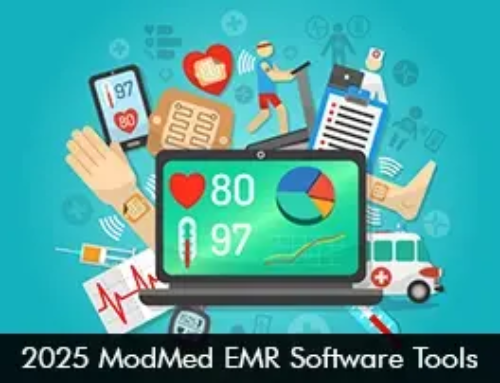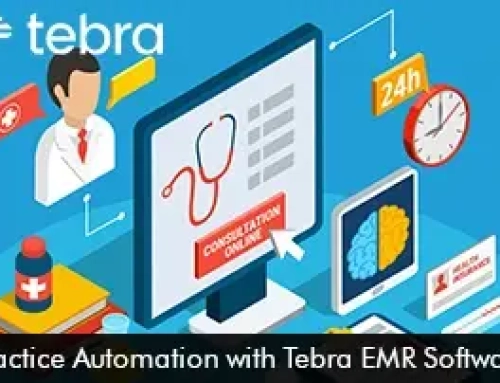Electronic Health Record (EHR) software plays a pivotal role in patient care. Beyond its primary function of maintaining comprehensive patient records, EHR systems are now leveraging cutting-edge technologies to predict potential allergic reactions, significantly improving patient safety and outcomes. With healthcare providers under pressure to deliver more personalized and efficient care, these systems have become indispensable in clinical practice.
By integrating artificial intelligence (AI), machine learning, and advanced analytics, modern EHRs can identify patterns, warn physicians of potential risks, and support clinical decision-making. This ability to predict allergic reactions marks a monumental shift in reducing adverse drug events and enhancing preventive care.
How EHR Software Predicts Allergic Reactions
EHR systems are no longer passive repositories of patient data—they are active tools in the fight against medical errors. Here’s how:
Comprehensive Patient Profiles
-
- EHRs consolidate patient histories, including past allergic reactions, current medications, and family histories, to build a comprehensive view of potential risk factors.
- This data allows providers to flag potential allergies before prescribing medications.
AI-Driven Analytics
-
- By analyzing vast datasets, AI algorithms embedded in EHR software can identify patterns that may not be apparent to human physicians.
- For example, patients with specific genetic markers or coexisting conditions may be flagged as at-risk for certain drug reactions.
Drug-Allergy Interaction Alerts
-
- EHRs can cross-reference prescribed drugs with a patient’s known allergies, instantly alerting providers to avoid potential harm.
- This feature also ensures compliance with safety protocols and reduces liability for providers.
Predictive Tools for New Allergies
-
- Advanced systems utilize predictive modeling to estimate the likelihood of new allergic reactions based on trends observed in other patients with similar profiles.
- This capability empowers healthcare providers to take preventive measures.
Integration with Genomic Data
-
- Some EHR systems now incorporate genomic data to identify predispositions to allergic reactions, enabling highly personalized care.
Importance of EHR Systems in Preventing Allergic Reactions
Improved Patient Outcomes
-
- Early prediction and prevention of allergic reactions can significantly reduce hospitalizations and emergency interventions.
Cost Reduction
-
- Preventing allergic reactions leads to fewer medical errors, reducing healthcare costs for both providers and patients.
Compliance with Regulations
-
- Many healthcare regulations, like those enforced by the FDA and CMS, emphasize patient safety. Advanced EHRs ensure compliance by documenting and mitigating risks.
Enhanced Trust in Healthcare
-
- Patients are more likely to trust providers who leverage technology to ensure their safety.
Top EHR Software for Allergy Care
Kareo Clinical
- Kareo is tailored for independent practices, offering a user-friendly interface with strong allergy tracking and medication management tools.
- Its integrated analytics can predict allergic reactions by analyzing patient histories and flagging potential risks.
- Designed for seamless use, it supports telemedicine, e-prescriptions, and patient engagement features.
- Regular updates ensure compliance with the latest healthcare regulations.
eClinicalWorks
- A favorite for its versatility, eClinicalWorks excels in predictive analytics and real-time allergy alerts.
- The system’s advanced AI capabilities identify patterns in patient data to warn against potential allergic reactions.
- It features comprehensive templates for various specialties and supports cloud-based operations.
- Also includes patient engagement tools, enabling providers to educate patients about allergy management.
Meditech Expanse
- Meditech Expanse is a cloud-first EHR that emphasizes patient safety with robust allergy and medication alerts.
- Its streamlined workflows ensure physicians can quickly access critical patient information.
- Predictive features analyze trends and recommend preventive actions to minimize allergic risks.
- Trusted by community hospitals and regional health networks for its affordability and scalability.
Practice Fusion
- Ideal for small to medium-sized practices, Practice Fusion offers robust drug-allergy interaction checks.
- Its simple interface makes it easy for providers to document allergies and track patient reactions over time.
- Provides cloud-based flexibility, with tools for appointment scheduling, e-prescriptions, and patient reminders.
- Known for its affordability, making it a go-to for independent practices.
DrChrono
- DrChrono combines intuitive design with advanced features like allergy alerts and risk analysis tools.
- Built specifically for mobile devices, it allows providers to manage EHRs on the go.
- Integrates with wearable devices, offering unique insights into patient health trends that could predict allergic reactions.
- Its billing and scheduling tools make it a comprehensive solution for small and mid-sized practices.
EHR software has transcended its traditional role, becoming an essential ally in predicting and preventing allergic reactions. By integrating cutting-edge technology like AI and predictive analytics, EHR systems empower healthcare providers to deliver safer, more personalized care. Solutions like Epic Systems, Cerner Millennium, and Athenahealth exemplify how technology can revolutionize patient safety and clinical efficiency.
As the healthcare industry continues to prioritize patient safety, investing in top-tier EHR systems is no longer optional—it’s a necessity.








